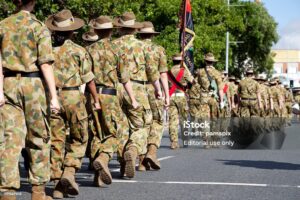To be confident your superannuation benefits are paid on your demise as you intend them to be, care is required to avoid an invalid binding nomination.
An invalid binding nomination will result if its language, form or means of transmission does not accord with the terms of the particular superannuation fund deed.
 The Supreme Court of Queensland recently had to determine the validity of a binding nomination that was challenged on one of those grounds.
The Supreme Court of Queensland recently had to determine the validity of a binding nomination that was challenged on one of those grounds.
Anthony Williams died on 28 December 2021. He was survived by his second wife Gayle who he had married in 2019, as well as his two adult sons Paul and Mark who was appointed as the executor of his estate.
Anthony had a self-managed super fund which he called the Boosey Doherty Superannuation Fund, of which he was a trustee.
The initial members of the fund had been Anthony and his first wife Margaret, but after Margaret died in 2014 their son Paul became a trustee in Margaret’s place and he remained as trustee of the fund at the time Anthony died.
Paul and Mark entered into a Deed – after Anthony’s demise – to attempt to add Mark as an additional trustee of the fund.
In dispute was this appointment, as well as the effectiveness of the binding death benefit nomination Anthony had prepared and duly signed in March 2018 in accordance with the requirements of the deed as to its form, directing his death benefit to be paid 50% to Gayle, and 50% to his estate.
Paul determined the nomination to be invalid however because the paperwork had not been given by Anthony to him as co-trustee of the super fund as required by the terms of the deed.
Paul also declined to provide super fund information to Gayle until ordered by the court and resolved that by reason of Anthony’s conduct in not copying his nomination to Paul, neither Anthony’s estate nor Gayle should be paid any benefit from the fund.
Not surprisingly Gayle sought relief from the court by way of an order declaring that the nomination to be valid and removing Paul and Mark as trustees.
The contest came before Justice Glenn Martin who concluded that the binding nomination was invalid because it had not been given to Paul as trustee after it had been made because the terms of the deed required nominations to be given to all trustees.
He did not accept Gayle’s argument that the nomination could be valid so long as Anthony as one of the trustees had acknowledged its receipt because the Deed specified that “notice to one of the trustees is not notice to all of them”.
Paul and Mark were less successful though on the issue of whether they should be removed as trustees.
Justice Martin first held that Mark had not been validly added as a trustee of the fund, finding that such appointment had – also contrary to the terms of the deed – purportedly occurred before he had been granted probate of the will.
He also concluded the “behaviour of Paul … is, at least, concerning” and his decision that Gayle, should be deprived of Anthony’s entire death benefit because of his non-compliance “was “not a decision that one might expect to be made by a trustee acting rationally”.
He ordered that Paul and Mark should be removed as trustees.
What remains to be determined is whether the independent trustees proposed by Gayle – who he agreed were suitably qualified and independent – could be appointed to a SMSF of which they were not members.
Williams v Williams & Anor [2023] QSC 90 Martin SJA, 5 May 2023
source https://qldestatelawyers.com.au/invalid-binding-nomination-trustees-should-pay-spouse-regardless/
 Ross was born in 1935 and lived his entire life at his parents’ home in Largs Bay, a suburb in the north-west of Adelaide on St Vincents Gulf, until he suffered a fall in 2018.
Ross was born in 1935 and lived his entire life at his parents’ home in Largs Bay, a suburb in the north-west of Adelaide on St Vincents Gulf, until he suffered a fall in 2018. Sijia Guo brought a claim for provision out of the estate of her late mother Wei Hong who disappeared in April 2001 never to be seen again. Under intestacy rules her entire estate passed to her spouse, leaving nothing for her adult daughter.
Sijia Guo brought a claim for provision out of the estate of her late mother Wei Hong who disappeared in April 2001 never to be seen again. Under intestacy rules her entire estate passed to her spouse, leaving nothing for her adult daughter.